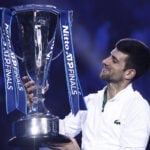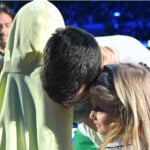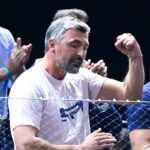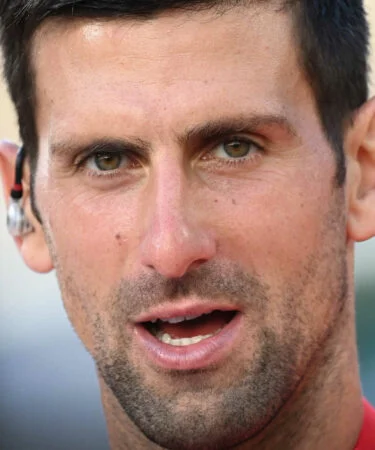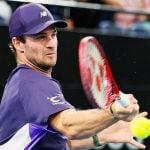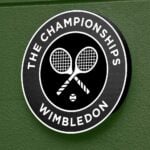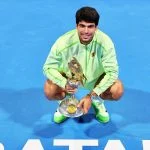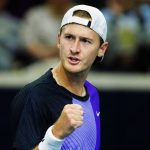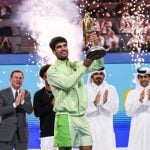Djokovic: “The limits are the ones you set for yourself, including age limits”
Both Djokovic and Nadal sent clear messages about their longevity last week in Turin. Like Roger Federer, retired at 41, they set no limits.
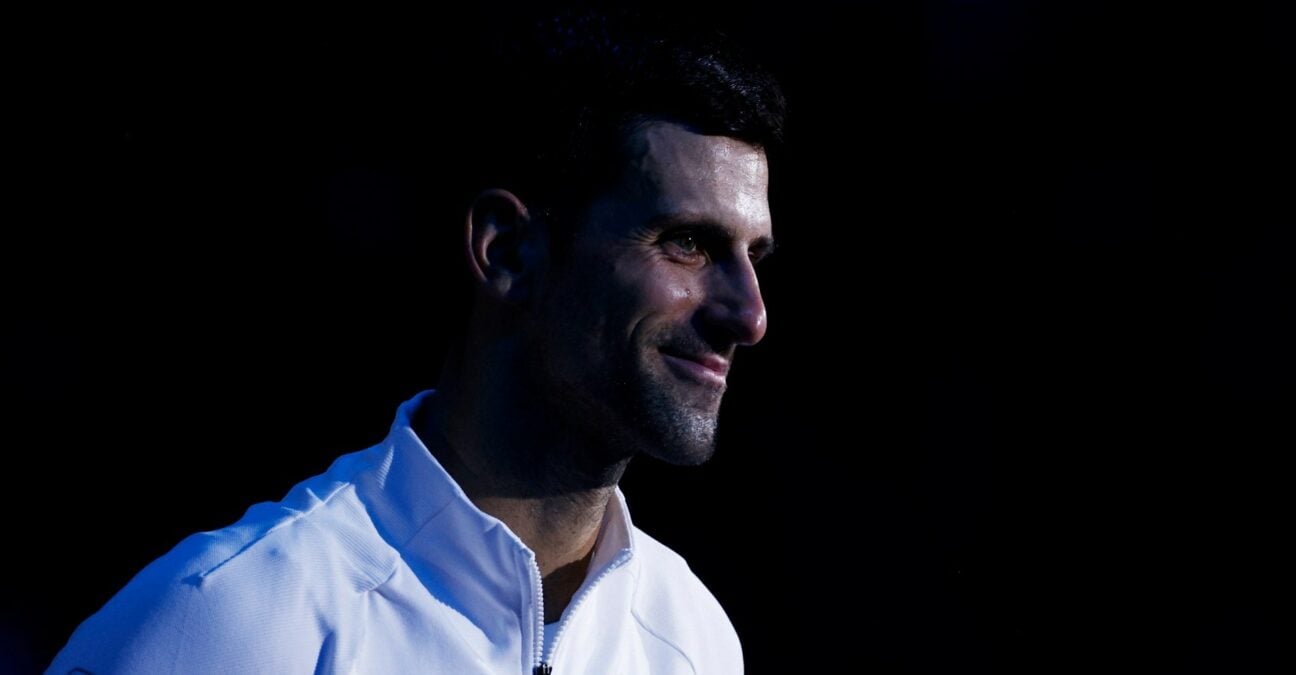 AI / Reuters / panoramic)
AI / Reuters / panoramic)
Among the slightly crazy stats that accompanied Novak Djokovic’s victory at the ATP Finals, there is this one: the Serb is the only player in history to have won the “Masters” in three different decades. Between his first success in Shanghai in 2008 and that of Turin in 2022, 14 years have passed. And nothing says that the story will end there.
At 35, Djokovic appeared hungrier than ever in his quest for titles and records after his final against Casper Ruud. He has every reason in the world to measure how lucky he is to play tennis at this level and never give up. In summary: he is inspired by this game and its history, his vaccination status meant he missed 40 percent of the season, his children love to follow him on the Tour, and even the money (he has just won the biggest prize money in the history of tennis at more than 4 million euros) is not a non-factor for someone “whose family has known moments with zero on the table, given the context (of war in Serbia, editor’s note) in which (he) grew up.”
Novak still poised to dominate – and Turin made that clear
The idea that the end of his and Nadal’s dominance of men’s tennis will come to an end because of their age took a hit this week in Turin. Certainly, the competition is denser than it has ever been. The bar has been set very high by teenagers Carlos Alcaraz (last Grand Slam winner) and Holger Rune (the only player to have deprived Djokovic of a trophy since Rafael Nadal at Roland-Garros), and the peloton chasing them has a rare and impressive density. Certainly, the two men will not get any younger. But, each in their own way, has invited us to distance ourselves from old beliefs regarding what turning 35 means for the game’s elite stars.
Until this fall, the standard of “how does he do it?” was worn by Roger Federer. The 20-time Grand Slam champion retired at 41, but not before showing a new, mind-blowing form of longevity. The Swiss was competitive at the top until 39, he was in the Wimbledon final at 38 and world No 1 at 36. Besides the anomaly known as Ken Rosewell, this type of performance has been basically unheard of in the sport. In the 21st century, winning Grand Slams at 32 (like Sampras) or 33 (like Agassi) has been rarer than retiring at 30 or 31.
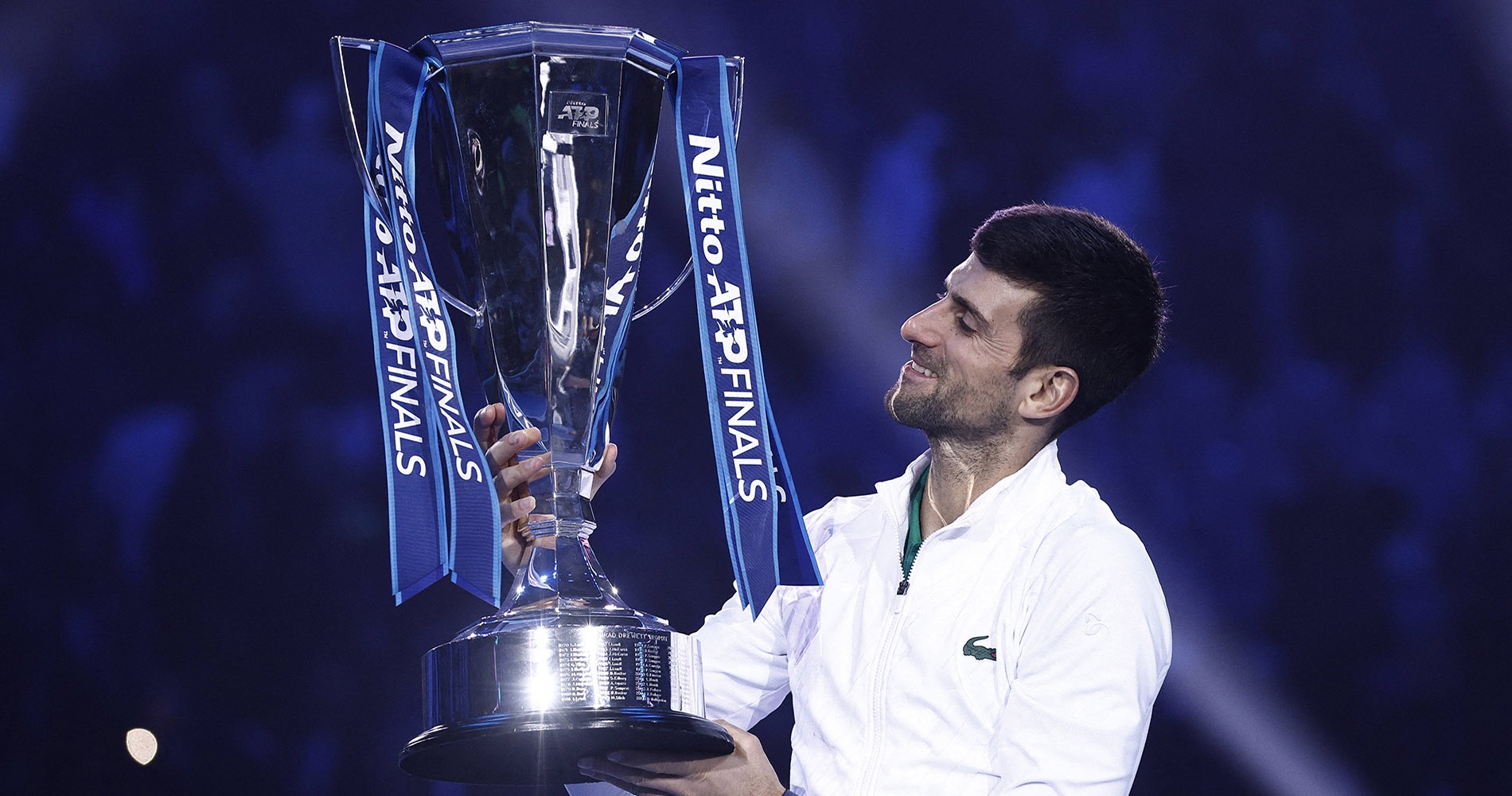
Federer’s coach told Tennis Majors in September: “Roger wanted to play tennis until he was 100 years old. No one was going to get him to quit on his own. Therefore, all that could happen was for him to play until the moment he was prevented from doing so by injury.”
Nadal and Djokovic to follow Roger’s lead
Everything indicates that the same will happen for Nadal and Djokovic. Federer has pushed the bar to a height that will surely inspire his Big Three brethren. Nadal, who is 13 months older than Djokovic, 36 years and five months old, at the time of writing, is the one of the two who is more aware of the limits that his body can impose on him, due to his recurring injuries, in particular in the second half of this season. “I don’t know if I can get back to my (best level), but I’m ready to die for it,” he said on the evening of his defeat by Félix Auger-Aliassime in the round robin play.
Nadal is more aware of playing against the clock than Djokovic, but his attitude has never deviated from an “absolute” line, which led him in 2022 to achieve his best season since 2019: as long as he is competitive at the highest level, he will play. A line that could lead the current world No 2 to start Roland-Garros 2023 as a credible candidate for a 15th title, at 37 years old. Older than Federer in Melbourne in 2018. Barely younger than the aforementioned Rosewall at the 1972 Australian Open – a record of its kind.
Djokovic does not see limits on his potential for domination, even at the age of 35 and five months. The Serb has been loyal to questions about his physical condition in recent Masters matches. But the obvious wear and tear in which Daniil Medvedev placed him in the group stage, his lack of speed against Taylor Fritz in the semi-finals, his gasping more often than usual in the final against Ruud, all this worried more those who saw him with shaky hands at changeovers than Djokovic himself.
“No limits” – at least for now
“I don’t think that a limit exists,” Djokovic said earlier this week, after winning a three hour and 20-minute slugfest against Daniil Medvedev. “It’s really in your head. It’s really about perspective and approach and your perception of how you see things in that given moment.
“Of course, when you’re going through physical struggles, it affects the game, it affects how you feel mentally, it affects your body language. Of course, the opponent likes seeing you down, and he’s trying to dominate in the rallies, he’s trying to get the upper hand of the match, which was kind of the situation that was happening today.
“But I think the biggest battle, as I’ve said before, is always the inner battle. If you manage to find yourself in that optimal state of mind and body as often as you possibly can, I feel you can extract the best and reap the best results for yourself in every moment, every point, every match.”
Without the slightest question being asked about his age, Djokovic indicated, when asked about the overall vision he had of his career and his vocation in tennis, to consider that there was “no end on paper” for him, translation that we offer for ‘no end zone”.
“I don’t feel I have thoughts or ideas about how I want to end my career in terms of when I want to end it, if that’s an answer for you. If I had something on my mind, I would share it with you, saying, Okay, this is what I’m navigating towards, and when I do that, I’ll leave the racquet.
“I don’t have that.”
“I hold in my mind huge hunger to still win major trophies”
Djokovic has made only two departures from this rule in his recent declarations. First to see that Federer’s exit from the stage had given him ideas on the big day of his retirement. “I too would like to be surrounded by my greatest rivals,” he said in September, a phrase that alarmed his die-hard fans, accustomed to Djokovic never talking about retirement.
Then, Sunday after the final, in reference to his family. “You never know what’s going to happen. My kids are eight and five. They’re growing older. They’ll have different interests. Maybe they’ll have a different requirements or demands from me. I have to think about them. If I have to spend more time with them or support them in their lives, maybe less with tennis, that’s going to happen.
“I don’t know what the future holds, but I know that what I hold in my mind is a huge hunger still to win trophies, make history of this sport, compete on the highest level all around the world, bring good emotions to sports fans, tennis fans. That’s what drives me a lot.”
On Sunday after the final, Djokovic’s coach Goran Ivanisevic greeted as almost pointless a question about the arrangement of the training he had to carry out to keep an athlete who is no longer 22 years old at the top. “He’s practising even harder than when he was 22. That’s why he’s still so good and that’s why he’s still going to be even better,” he said. “The will to practice, the will to improve, the will to be better is amazing. He’s taking care of his body. In my time we stop tennis with 30, 31. You were already old guy ready to leave.
“But look at Novak. He’s still hungry, he’s still winning the tournament, playing unbelievable tennis. He’s still already thinking now about preparation for next season.”



